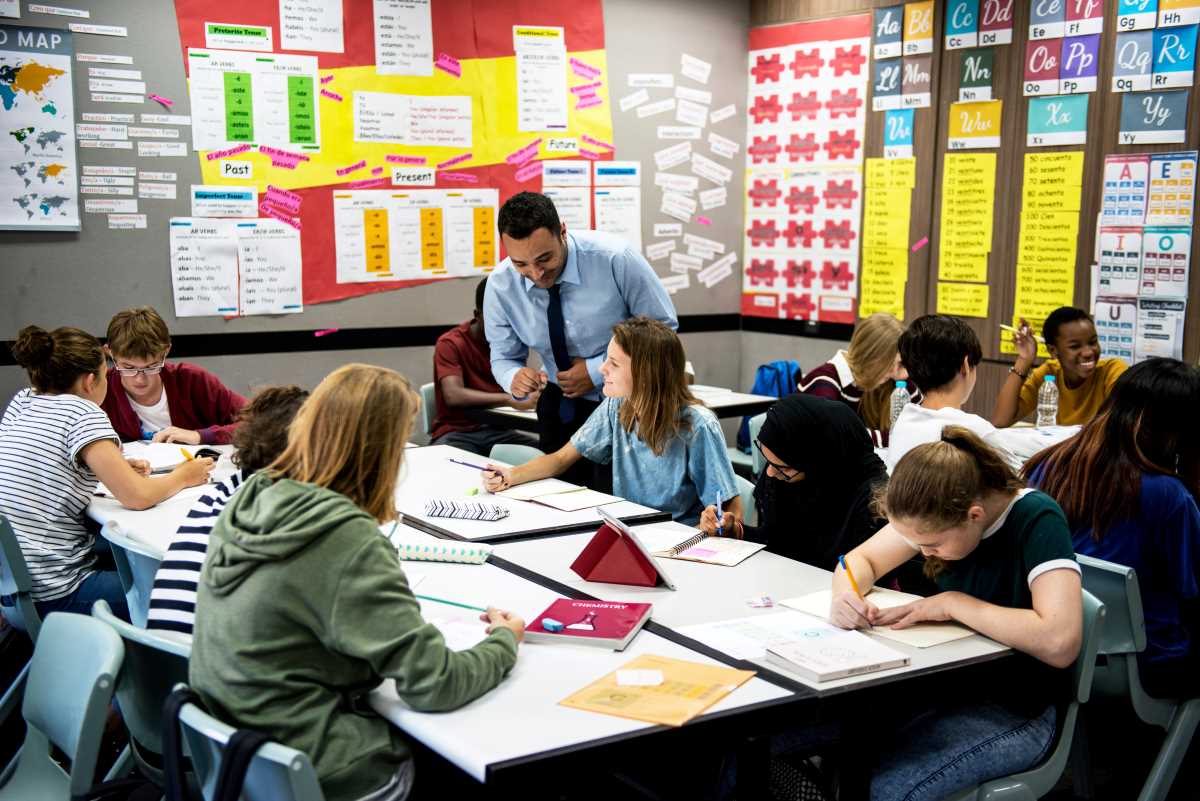
By Anna Merod | K-12DIVE |
Seven years ago, Ashley Lawrence Brooks, then a public health worker, noticed inequities and health disparities among older adults who didn’t know how to read. This revelation would set her on the path to becoming a teacher for Baltimore City Public Schools.
At the same time, Lawrence Brooks was expecting her first child and began researching the district, knowing her daughter would eventually attend a BCPS school. As Lawrence Brooks learned more, her interest in starting a career in education was sparked further.
Lawrence Brooks already had a bachelor’s and a master’s degree, but neither were in teaching. As she began looking for ways to enter the education field, Lawrence Brooks wanted to find the “quickest” and least expensive option for switching professions.
That’s when she found the Baltimore City Teaching Residency, or BCTR, an alternative teaching certification program partnering with BCPS, where she became a cohort teaching resident in the summer of 2015. Since then, Lawrence Brooks has taught full time at the elementary level in the district.
The 20-year-old Baltimore residency program requires applicants to hold at least a bachelor’s degree with a minimum undergraduate grade point average of 2.0. The program is run through the nonprofit TNTP Teaching Fellows. Participants must pay $7,000 to cover a six-week summer training program to prepare them for entering the classroom in the fall and year-long certification coursework during which they typically meet weekly.
“The six weeks were intense. The days were long, but the weeks went by very quickly,” Lawrence Brooks said. “We dived right into the content the first day, and the following week I was in front of students teaching for at least an hour each day.”

Recruiting teachers in high-needs schools
Between 2002 and 2021, 2,576 Baltimore residents enrolled in the program, according to Molly Burke, senior manager of regional communications at TNTP.
BCTR is one of three alternative teaching certification programs that partners with the Baltimore district, said Sarah Diehl, executive director of recruitment and staffing at BCPS. The others are Teach for America and Urban Teachers, she said.
Alternative certification programs provide the district with a significant percentage of teachers in higher-need content areas, such as math and special education, Diehl said.
Were we not to partner with these programs, with BCTR, I do anticipate that there are some number of vacancies in high-needs content areas or high-needs schools that would otherwise go unfilled,” Diehl said.
The No. 1 goal of the Baltimore fellows program is to supply teachers to the district’s high-needs schools, said Johari Toe, who directs the program for TNTP.
“The way we retain adults is to make sure that they understand what they’re walking into, that they understand the environment that they’re about to be connected with,” Toe said. “Although we can’t speak for the diverse needs of every single Baltimore City public school that they’re going to walk into, we do spend a lot of time teaching them about the history of Baltimore.”
That includes teaching residents about past and present systemic racism that still impacts the city, she said, adding it’s important to “learn the people” and “learn the community.”
This summer, Adam Weeks completed training as a Baltimore fellow and began teaching 2nd grade students in a city school this fall. As Weeks prepared his classroom before school opened Aug. 29, he said he felt ready to handle a class full of students.
“I feel like I have a unique understanding of Baltimore students and the best way to teach them,” Weeks said. “BCTR is really great about telling [and] being honest about the state of Baltimore and education in Baltimore and preparing you to work in that, because it’s a very unique place.”


